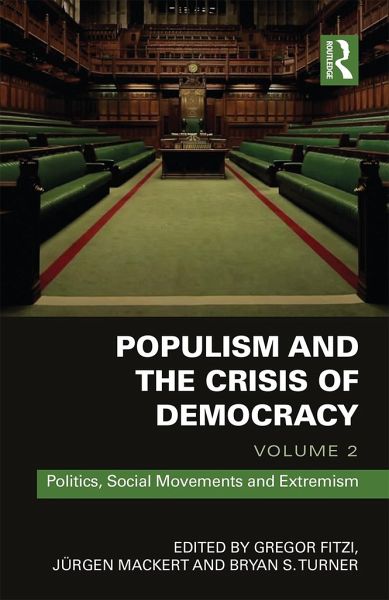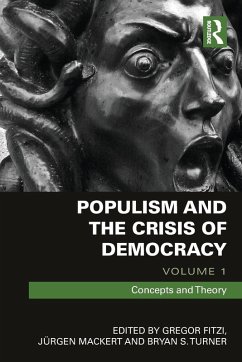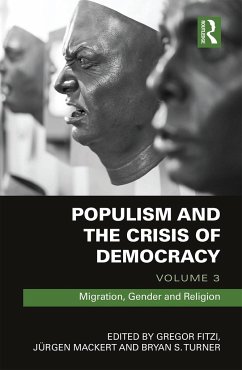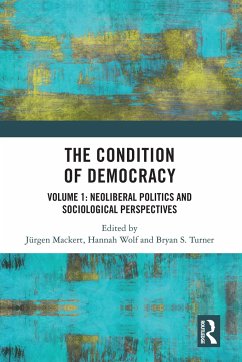
Populism and the Crisis of Democracy
Volume 2: Politics, Social Movements and Extremism
Herausgeber: Fitzi, Gregor; Turner, Bryan; Mackert, Juergen
Versandkostenfrei!
Versandfertig in 1-2 Wochen
55,99 €
inkl. MwSt.

PAYBACK Punkte
28 °P sammeln!
The contributions to this volume Politics, Social Movements and Extremism take serious the fact that populism is a symptom of the crisis of representation that is affecting parliamentary democracy. Right-wing populism skyrocketed to electoral success and is now part of the government in several European countries, but it also shaped the Brexit campaign and the US presidential election. In Southern Europe, left-wing populism transformed the classical two parties systems into ungovernable three fractions parliaments, whereas in Latin America it still presents an instable alternative to liberal d...
The contributions to this volume Politics, Social Movements and Extremism take serious the fact that populism is a symptom of the crisis of representation that is affecting parliamentary democracy. Right-wing populism skyrocketed to electoral success and is now part of the government in several European countries, but it also shaped the Brexit campaign and the US presidential election. In Southern Europe, left-wing populism transformed the classical two parties systems into ungovernable three fractions parliaments, whereas in Latin America it still presents an instable alternative to liberal democracy. The varying consequences of populist mobilisation so far consist in the maceration of the established borders of political culture, the distortion of legislation concerning migrants and migration, and the emergence of hybrid regimes bordering on and sometimes leaning towards dictatorship. Yet, in order to understand populism, innovative research approaches are required that need to be capable of overcoming stereotypes and conceptual dichotomies which are deeply rooted in the political debate. The chapters of this volume offer such new theoretical strategies for inquiring into the multi-faceted populist phenomenon. The chapters analyse its language, concepts and its relationship to social media in an innovative way, draw the con - tours of left- and right-wing populism and reconstruct its shifting delimitation to political extremism. Furthermore, they value the most significant aftermath of populist mobilisation on the institutional frame of parliamentary democracy from the limitation of the freedom of press, to the dismantling of the separation of powers, to the erosion of citizenship rights. This volume will be an invaluable reference for students and scholars in the field of political theory, political sociology and European Studies.














